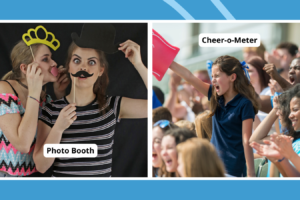University of Arkansas Creates Faculty Learning Community
Effective teaching and learning are key elements of a student’s academic success, but ensuring professors have access to training, support and resources to employ best practices in the classroom can be a challenge for institutions.
At the University of Arkansas at Fayetteville’s Fulbright College of Arts and Sciences, Lynn Meade created the Faculty Learning Community to tackle this issue, uniting professors across disciplines to improve student learning and achievement.
The Faculty Learning Community, which launched this summer, strives to unite staff and faculty across campus to work toward the shared goal of student success, Meade said.
The background: Meade has worked as a communications professor at the University of Arkansas for two decades, but in 2023, she realized there were entire student support teams and departments that she didn’t know about. The university hosted an event on high-impact practices to invite stakeholders to share and learn from one another.
“I sat down at a table with a whole lot of student success people, and I was amazed at all the things that they were doing and how I could be on our campus for so long and [have] no idea the things that were going on behind the scenes, things students could take advantage of that they hadn’t yet,” Meade said.
This experience prompted her to get more involved with support staff and orchestrate opportunities for other professors to learn from one another across campus. “We need to find a way to integrate faculty and student success initiatives,” Meade said. “They need to know what one another are doing, they need to shake hands, make friends, have coffee, talk—the things that really make things happen, because our students, their success depends on us cooperating.”
Students are more likely to talk to a faculty member they trust than seek out a support office on campus, Meade said. “I think informing them not only how to teach their class well, but also how to integrate those resources, is really important.”
The result was the Fulbright Faculty Learning Community, a community of practice and faculty development program, which Meade now leads as director.
How it works: The program launched with four offerings for faculty: a course-building workshop, a reboot class to help with updating content, forums for sharing innovative teaching ideas and introductions to student success teams.
One of Meade’s goals is to avoid replicating existing efforts on campus but provide a one-stop shop to unify and amplify the great work taking place. “There’s so many cool resources on our campus, but there’s no one place they all exist,” she said.
The Fulbright Learning Community had its kickoff event this summer, engaging 14 faculty members in a three-hour workshop on course building.
The workshop invited faculty to consider students, rather than content, at the center of their syllabus, using a communications principle of audience and purpose. “I think if our audience is students and our purpose is to teach them, maybe we shouldn’t say, ‘I’m going to cover my material,’ but, ‘I’m going to think of ways that they can learn the material,’” Meade said.
Survey Says
A 2024 Student Voice survey by Inside Higher Ed and Generation Lab found that 40 percent of respondents believe their academic success would improve if professors connected in-classroom learning to issues outside the classroom or students’ career goals.
Some professors who are straight out of grad school may have only received teacher education or used material given to them by other faculty, Meade said. Others who have taught abroad but never in the U.S. may need some help adapting their materials for American students.
The learning community also invited career center professionals to showcase ways to embed career competencies in the syllabus and attach resources to their learning management system to help address career development for students. A future session will invite professors to share how they’re using and teaching generative AI tools.
“Faculty success equals student success,” Meade said. “The teachers are their first line [of support]; a lot of that success is what’s happening with the teacher. When we all work together on the same side, how we communicate with each other is going to make a big impact on the student retention.”
If your student success program has a unique feature or twist, we’d like to know about it. Click here to submit.
Source link



